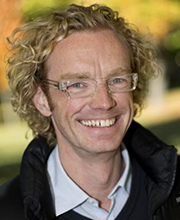Thomas Schön
Recording: Watch here
AI for research and some new results on deep regression
Abstract
This talk has two loosely connected parts: In the first part we discuss (using fairly concrete examples) how AI/ML can be used for research in classical areas of natural science and medicine. The illustrations stem from physics, medicine and biology that we have worked with over the past 2-3 years. The idea is to make a case for using AI/ML as a tool in research within more classical academic disciplines. This is tightly linked to the AI strategy of Uppsala University that I will briefly introduce as well. In the second part (which is perhaps slightly more technical) we develop a new approach to deep regression. While deep learning-based classification is generally addressed using standardized approaches, a wide variety of techniques are employed when it comes to regression. We have developed a new and general deep regression method with a clear probabilistic interpretation. We obtain good performance on several computer vision regression tasks (including a new state-of-the-art result on visual tracking).
About the speaker
 Thomas B. Schön is Professor of the Chair of Automatic Control in the Department of Information Technology at Uppsala University and has recently been appointed Beijer Professor of Artificial Intelligence at the same university. He received the PhD degree in Automatic Control in Feb. 2006, the MSc degree in Applied Physics and Electrical Engineering in Sep. 2001, the BSc degree in Business Administration and Economics in Jan. 2001, all from Linköping University. He has held visiting positions with the University of Cambridge (UK), the University of Newcastle (Australia) and Universidad Técnica Federico Santa María (Valparaíso, Chile). In 2018, he was elected to The Royal Swedish Academy of Engineering Sciences (IVA) and The Royal Society of Sciences at Uppsala. He received the Tage Erlander prize for natural sciences and technology in 2017 and the Arnberg prize in 2016, both awarded by the Royal Swedish Academy of Sciences (KVA). He was awarded the Automatica Best Paper Prize in 2014, and in 2013 he received the best PhD thesis award by The European Association for Signal Processing. He received the best teacher award at the Institute of Technology, Linköping University in 2009. He is a Senior member of the IEEE and a fellow of the ELLIS society.
Thomas B. Schön is Professor of the Chair of Automatic Control in the Department of Information Technology at Uppsala University and has recently been appointed Beijer Professor of Artificial Intelligence at the same university. He received the PhD degree in Automatic Control in Feb. 2006, the MSc degree in Applied Physics and Electrical Engineering in Sep. 2001, the BSc degree in Business Administration and Economics in Jan. 2001, all from Linköping University. He has held visiting positions with the University of Cambridge (UK), the University of Newcastle (Australia) and Universidad Técnica Federico Santa María (Valparaíso, Chile). In 2018, he was elected to The Royal Swedish Academy of Engineering Sciences (IVA) and The Royal Society of Sciences at Uppsala. He received the Tage Erlander prize for natural sciences and technology in 2017 and the Arnberg prize in 2016, both awarded by the Royal Swedish Academy of Sciences (KVA). He was awarded the Automatica Best Paper Prize in 2014, and in 2013 he received the best PhD thesis award by The European Association for Signal Processing. He received the best teacher award at the Institute of Technology, Linköping University in 2009. He is a Senior member of the IEEE and a fellow of the ELLIS society.
Bio from: http://user.it.uu.se/~thosc112/biography.html